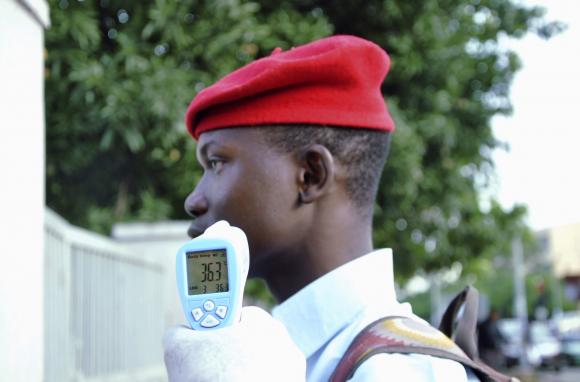BBC launched WhatsApp for information against the deadly Ebola outbreak in West Africa

The British public service broadcasting company, BBC, has declared an information dissemination campaign to track the growing number of cases and updates on the Ebola virus plaguing parts of West Africa.
"The service will provide audio, text message alerts and images to help people get the latest public health information to combat the spread of Ebola in the region," according to BBC.
"Content will be limited to three items a day, and the service will be in English and French," the broadcasting company's explanation reads.
To activate the subscription, users must text 'JOIN' via WhatsApp to phone number 44 7702 348 651.
"The response to Ebola is now the BBC World Service's biggest health information drive since its reporting on HIV/Aids in the 1980s and 1990s. In addition to the WhatsApp service, the BBC is offering a range of content on radio, online and TV, including special Ebola bulletins in several languages," BBC explained further.
An alarming public health emergency, Ebola Virus Disease (EVD) has a fatality rate of 50% according to the World Health Organization (WHO)'s updated factsheet in September.
"The Ebola virus causes an acute, serious illness which is often fatal if untreated. Ebola virus disease (EVD) first appeared in 1976 in 2 simultaneous outbreaks, one in Nzara, Sudan, and the other in Yambuku, Democratic Republic of Congo. The latter occurred in a village near the Ebola River, from which the disease takes its name," WHO reported.
WHO which been relentless in its efforts to contain the lethal virus that killed thousands in the African region, and has already spread to various countries around the world, including confirmed cases in the United States.
"Ebola then spreads through human-to-human transmission via direct contact (through broken skin or mucous membranes) with the blood, secretions, organs or other bodily fluids of infected people, and with surfaces and materials (e.g. bedding, clothing) contaminated with these fluids," the health bulletin from WHO said.
While the EVD has caused a worldwide scare, it is good to know that the virus has stopped spreading in Senegal and Nigeria, giving hopes to other African countries affected.
Meanwhile, Wall Street Journal has reported that Canada is shipping 800 vials of "experimental Ebola vaccine" to WHO on Oct. 20.